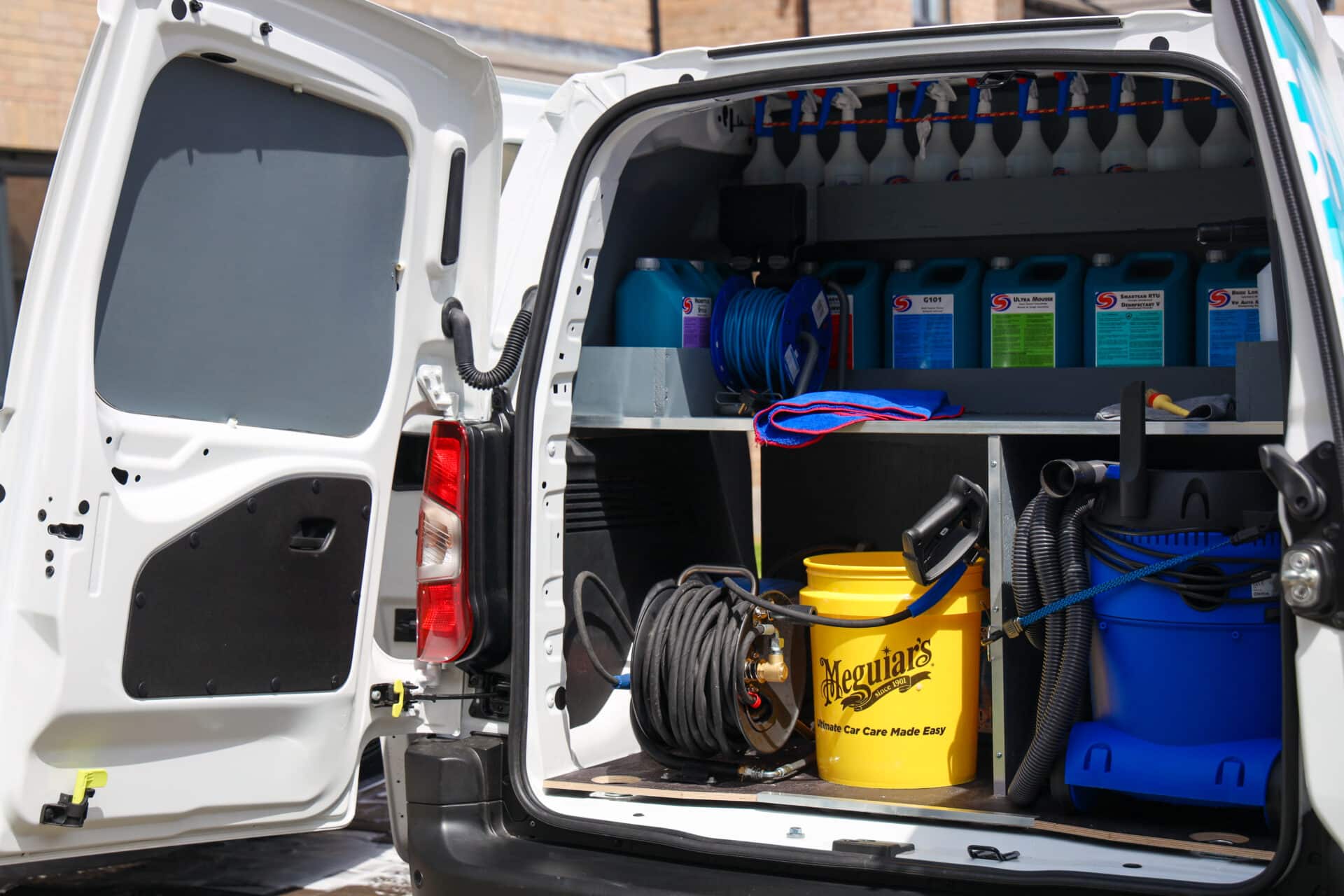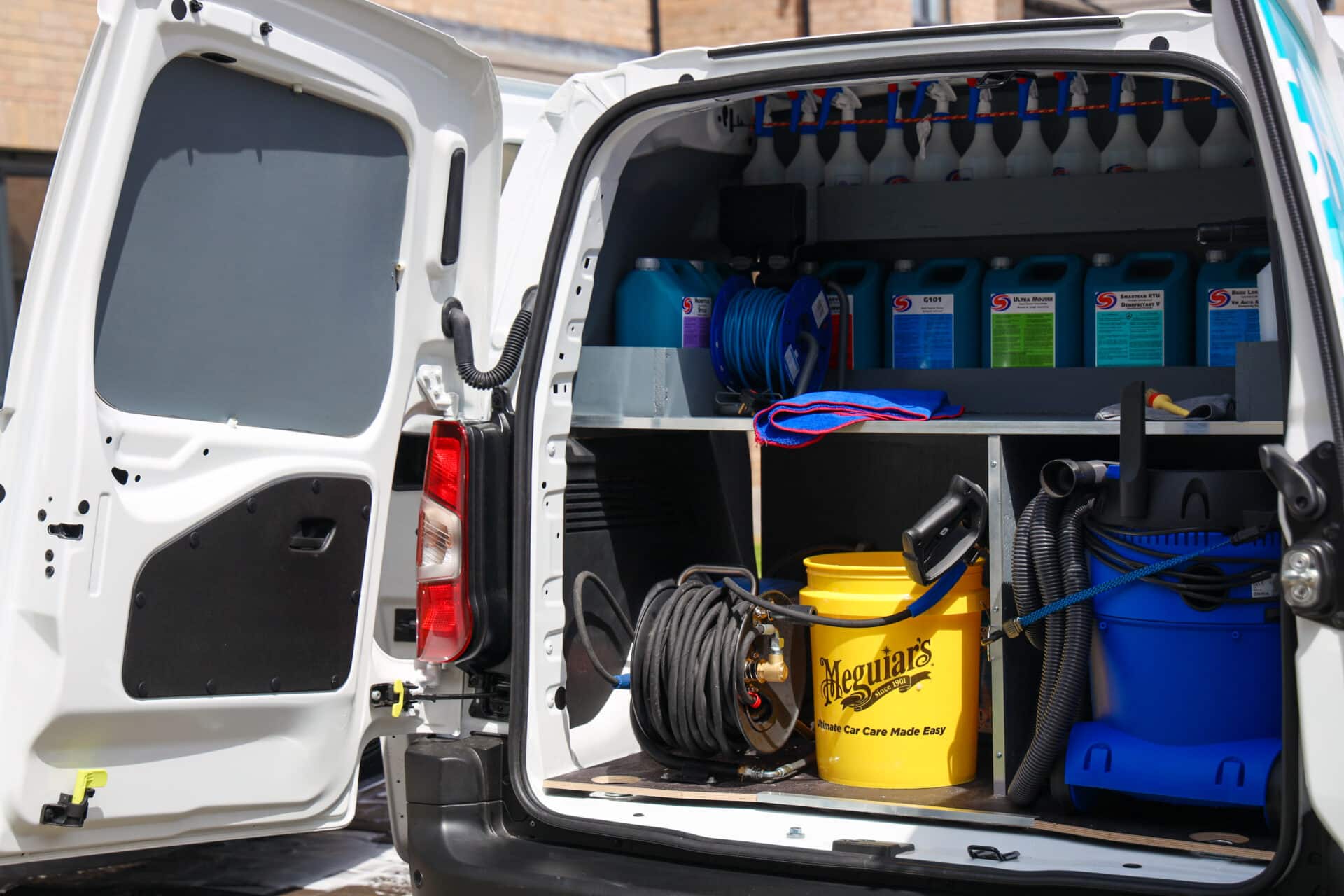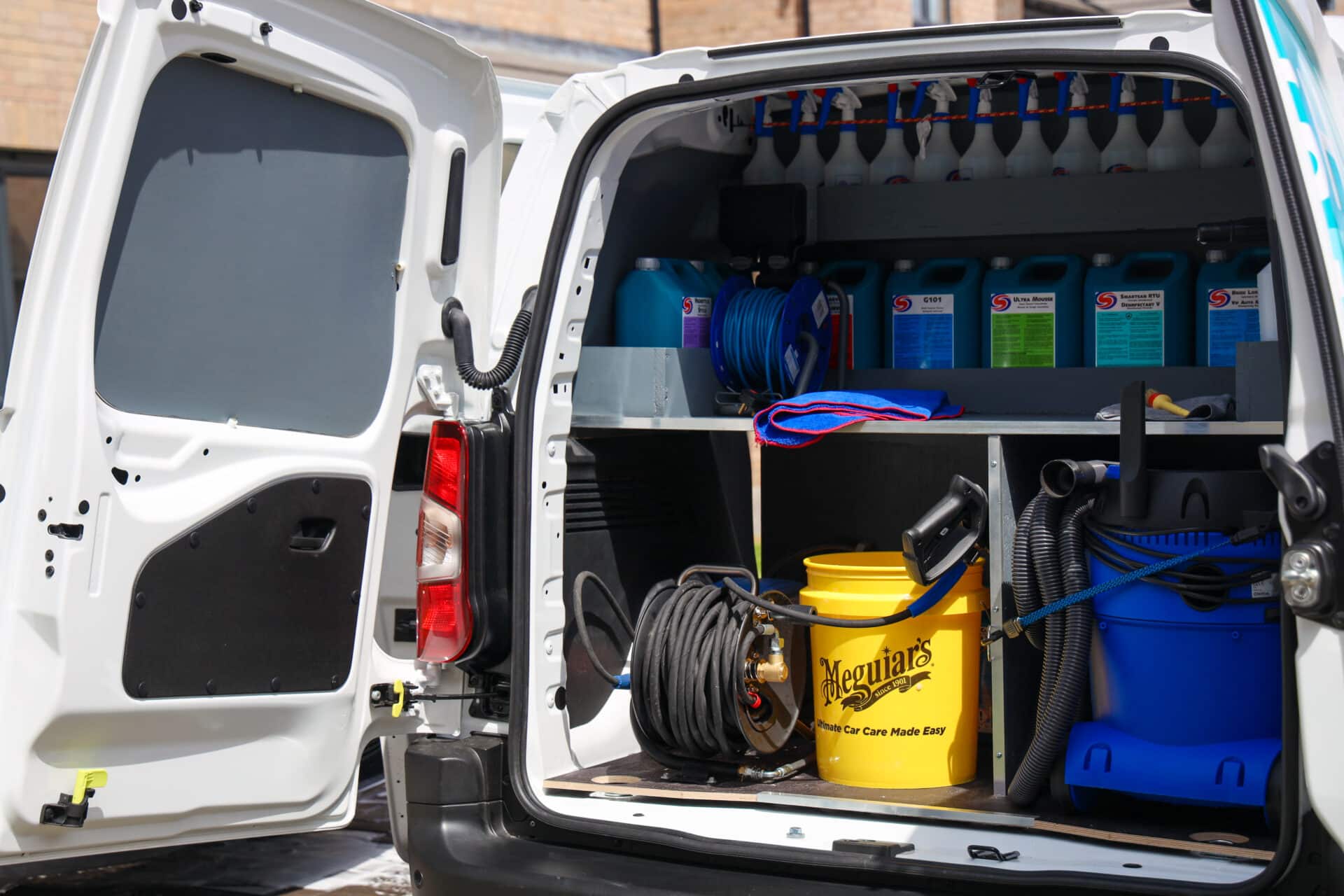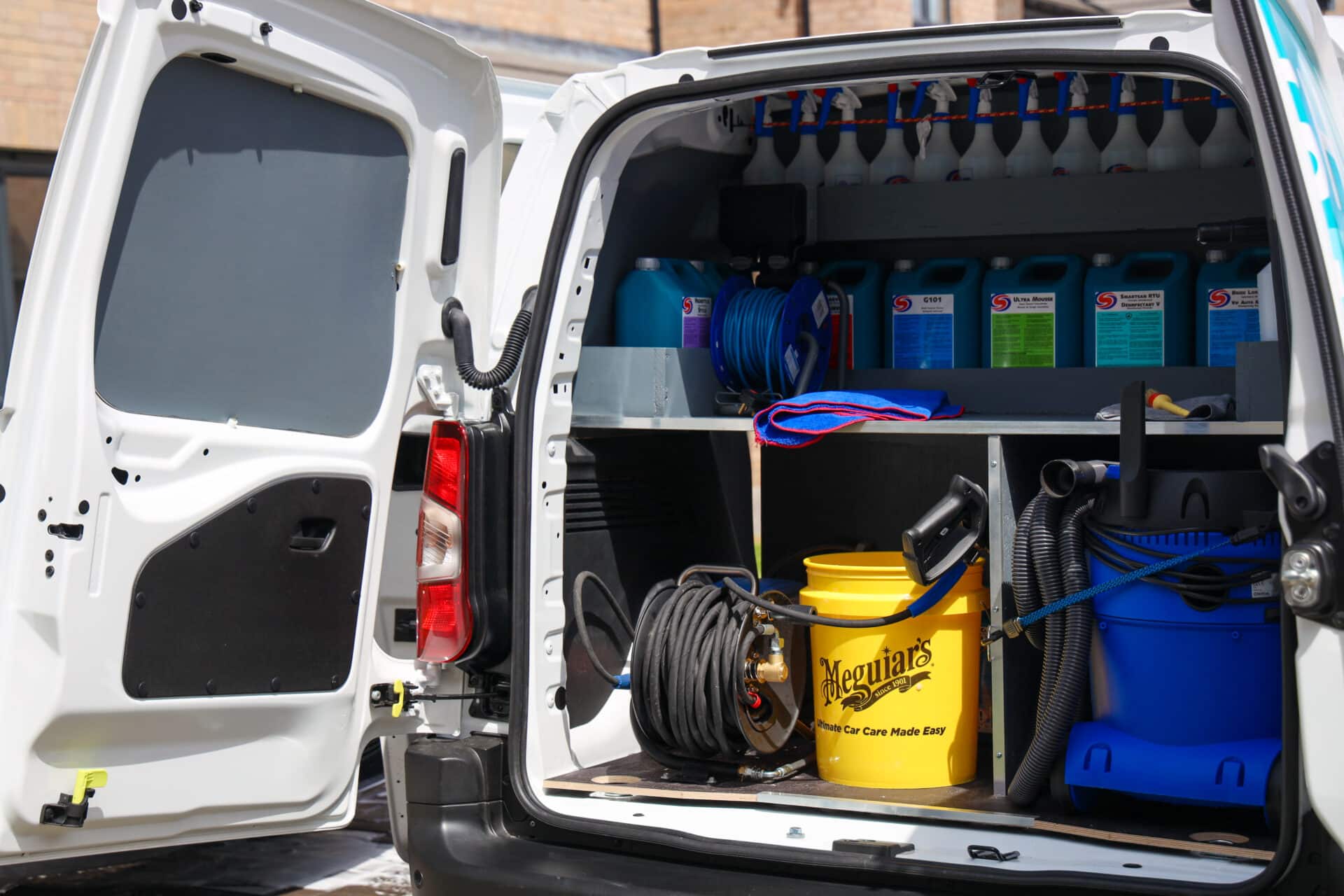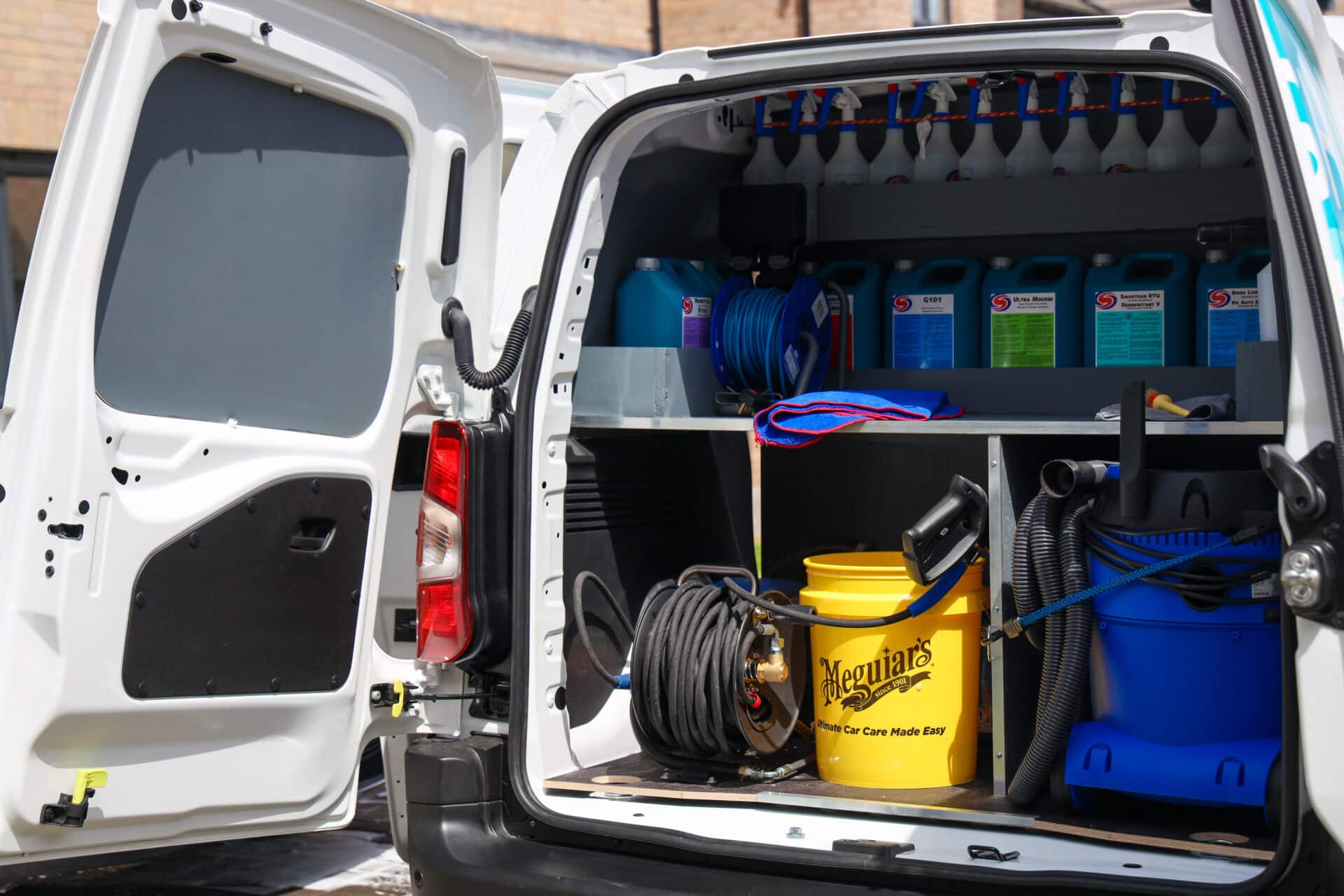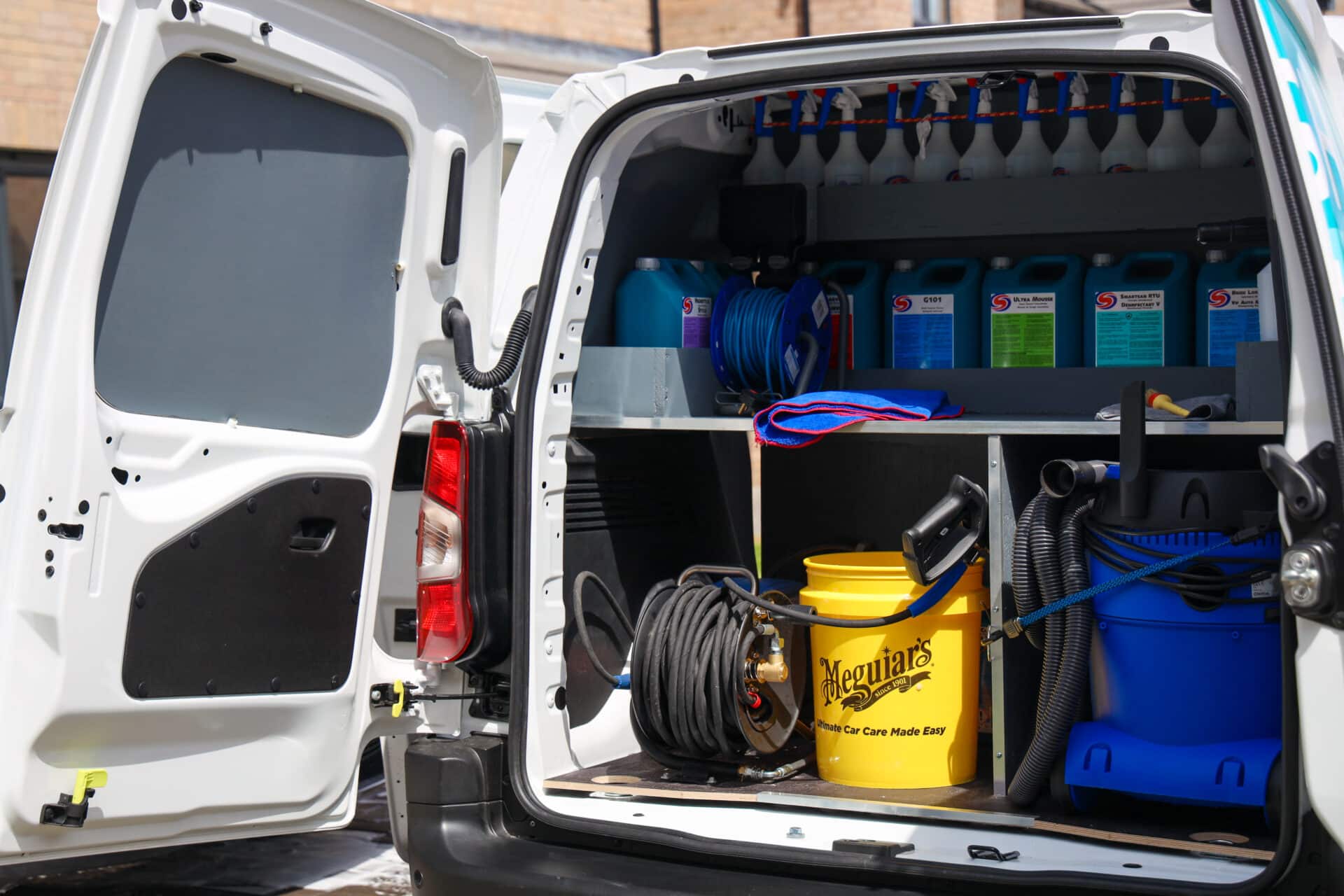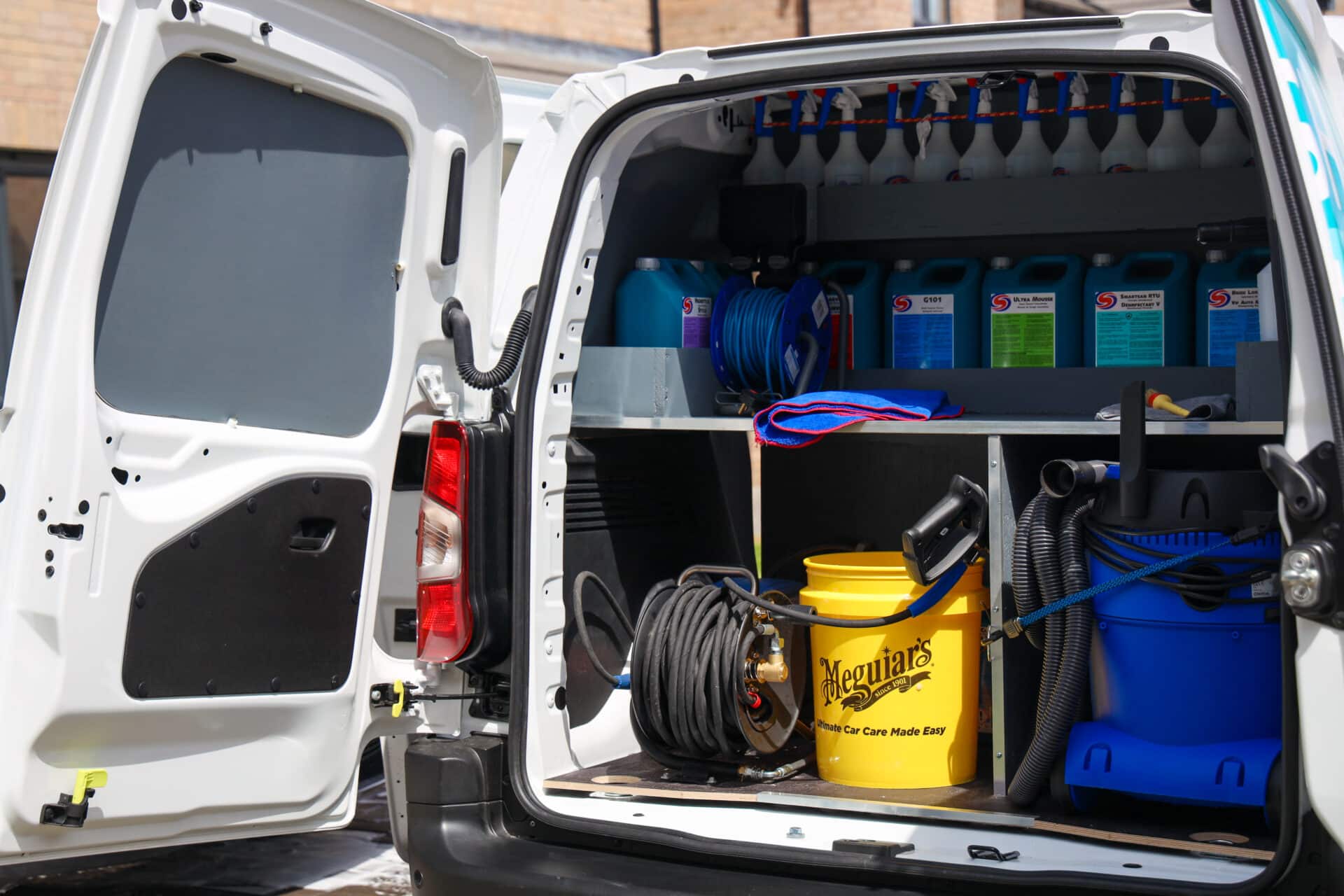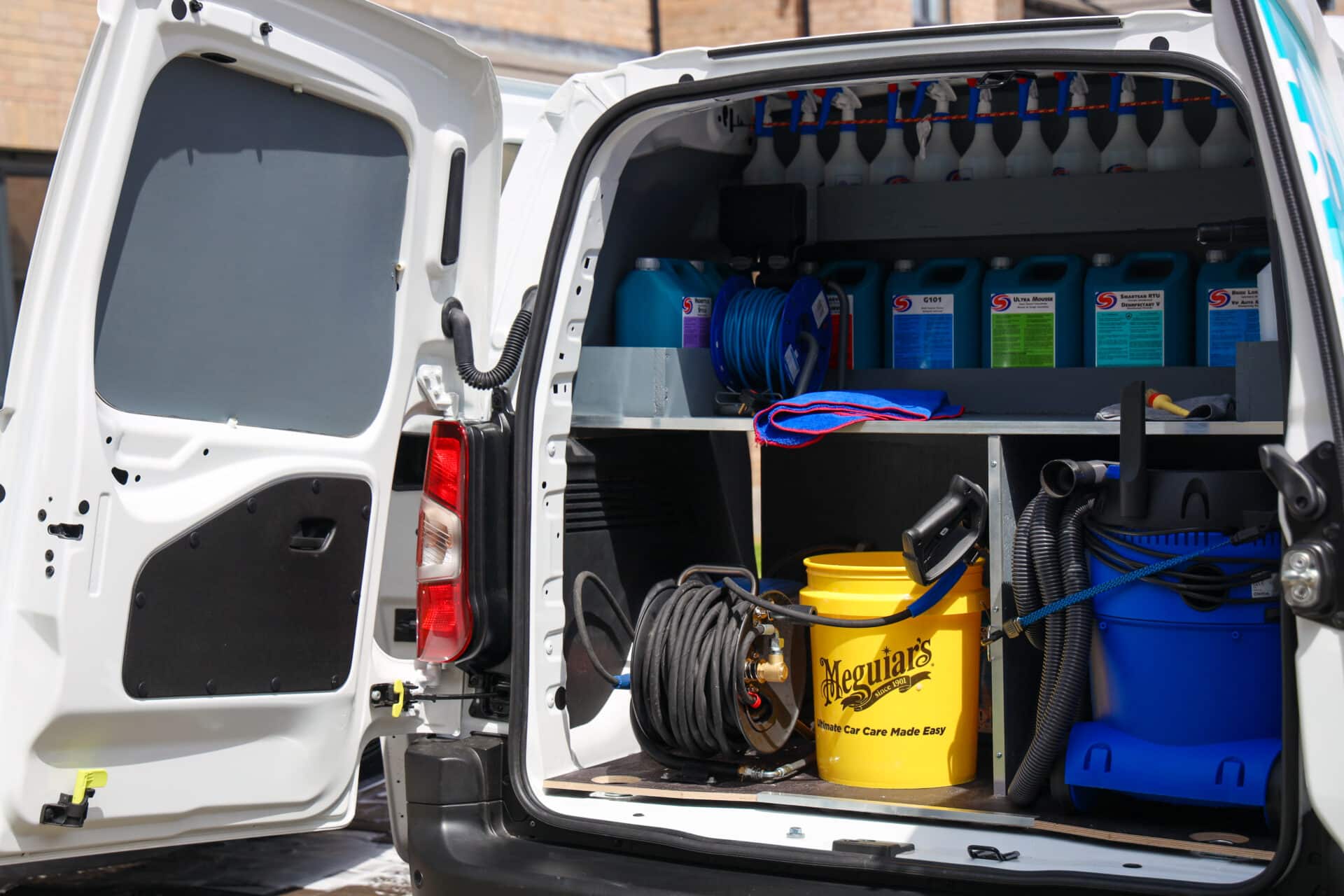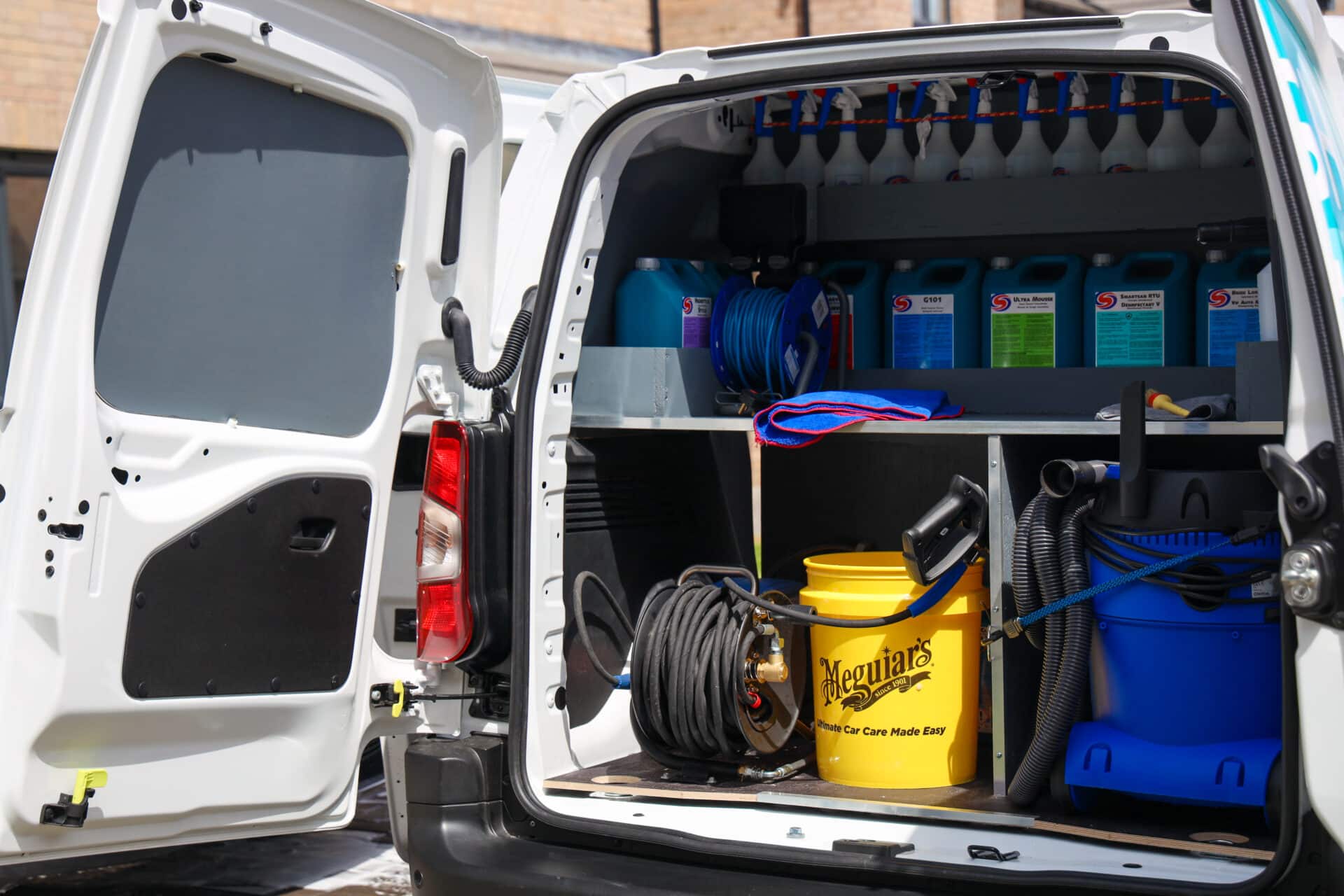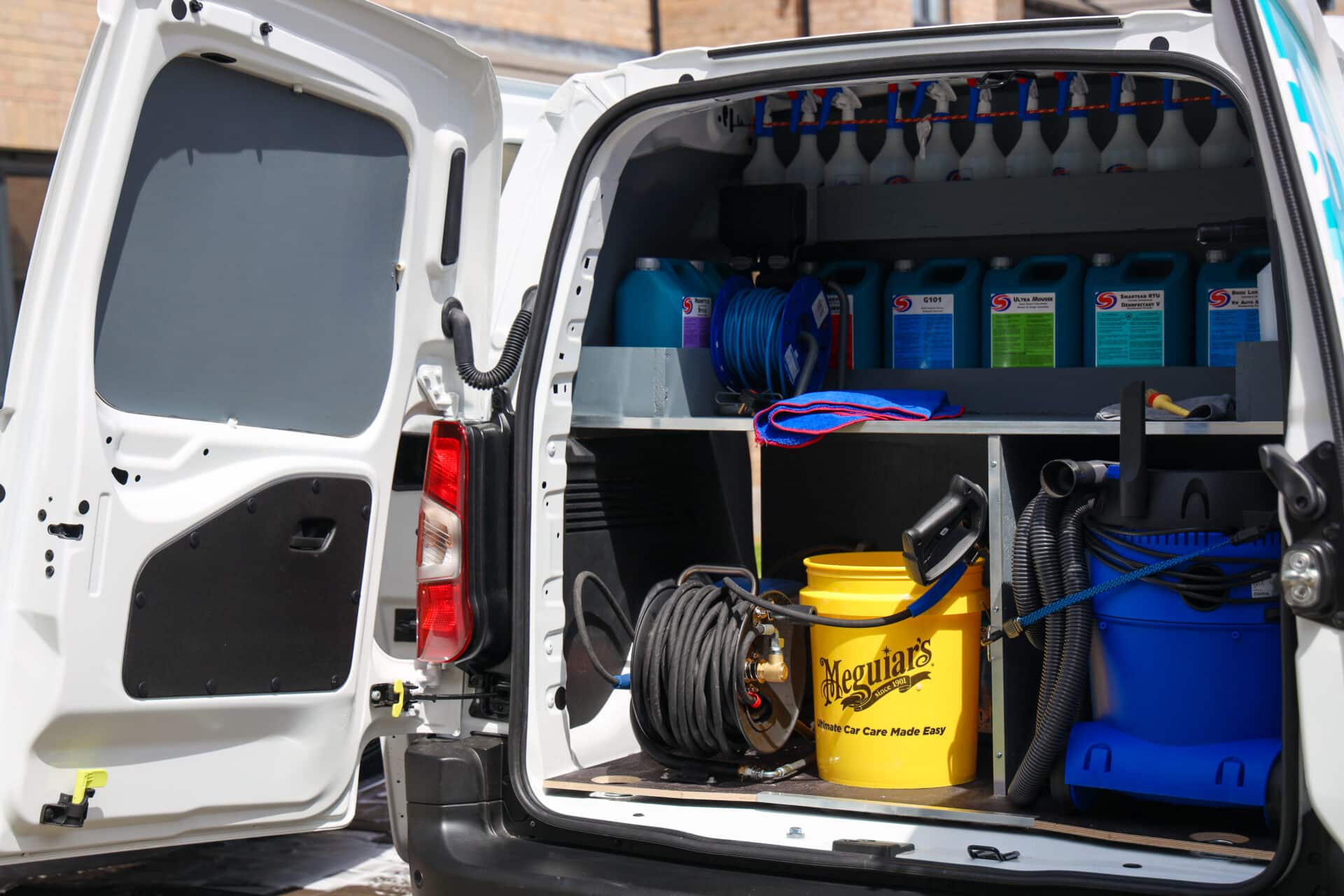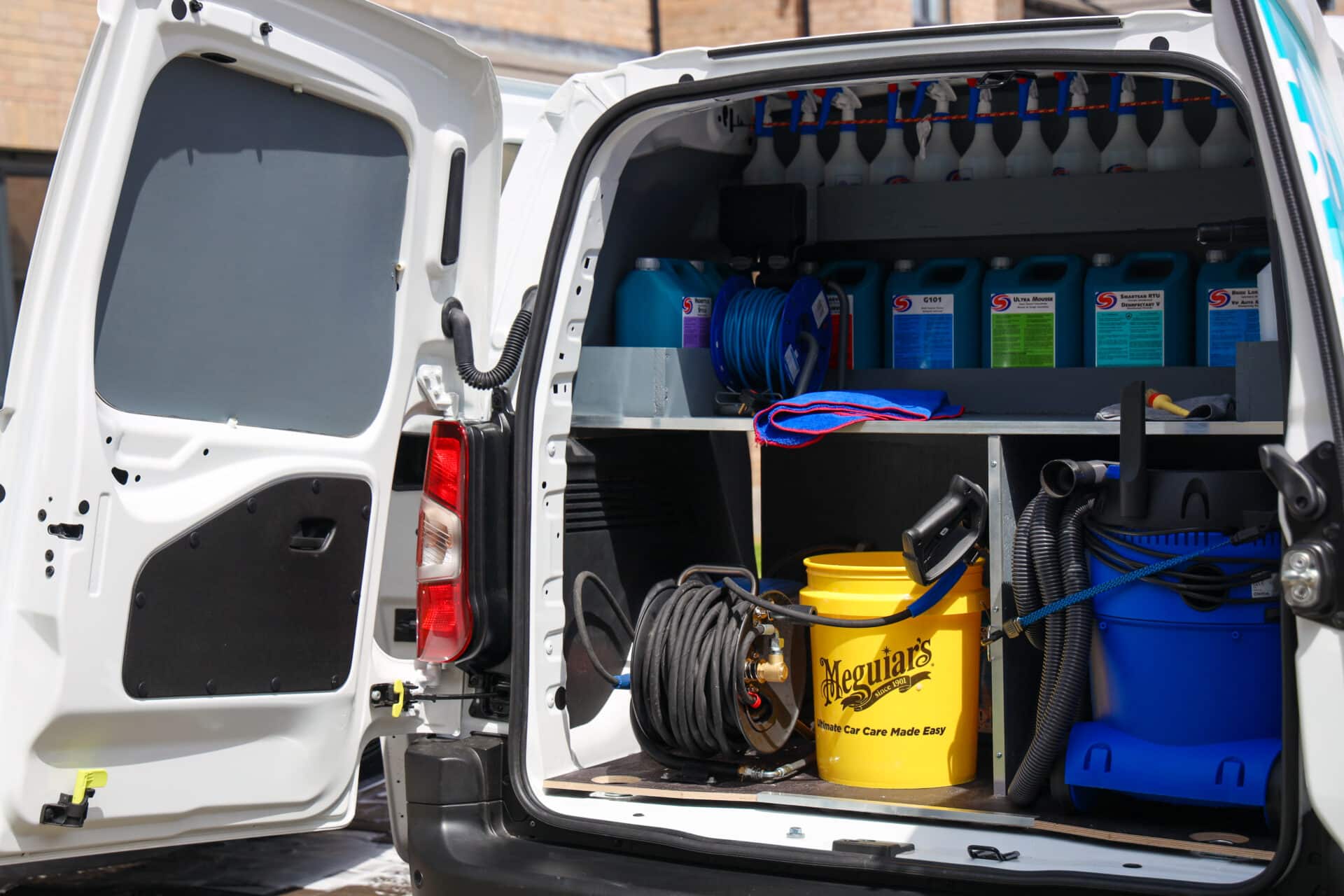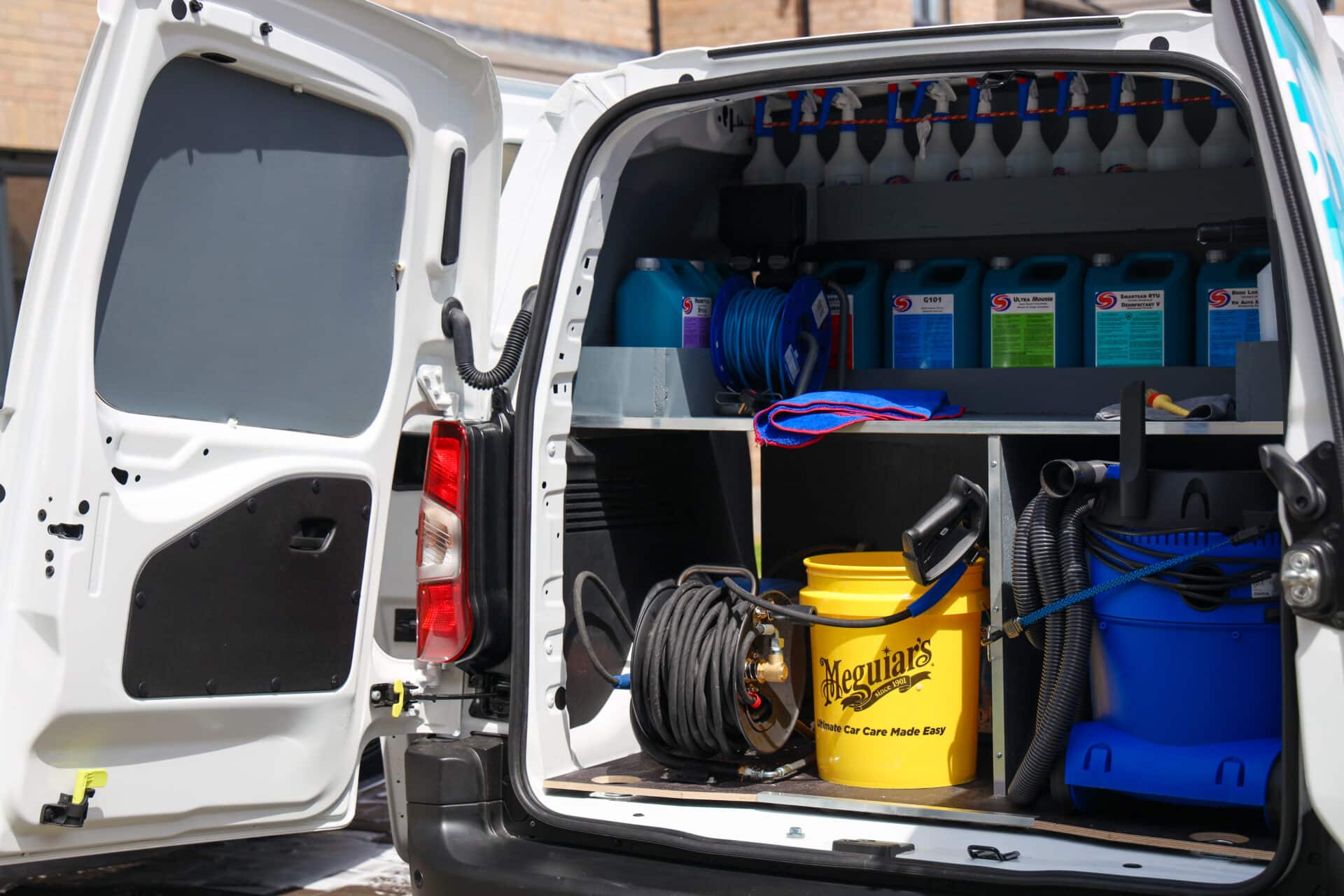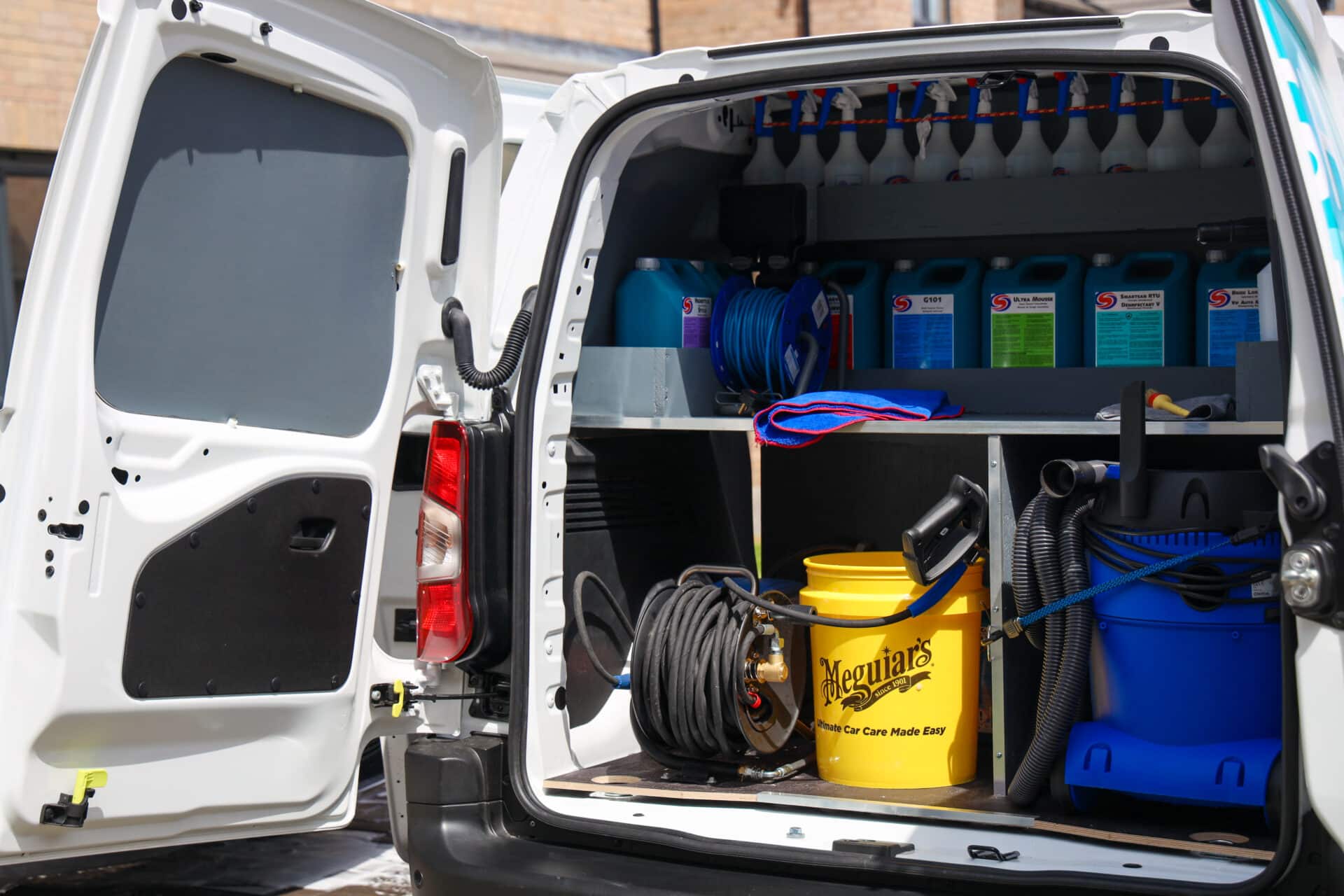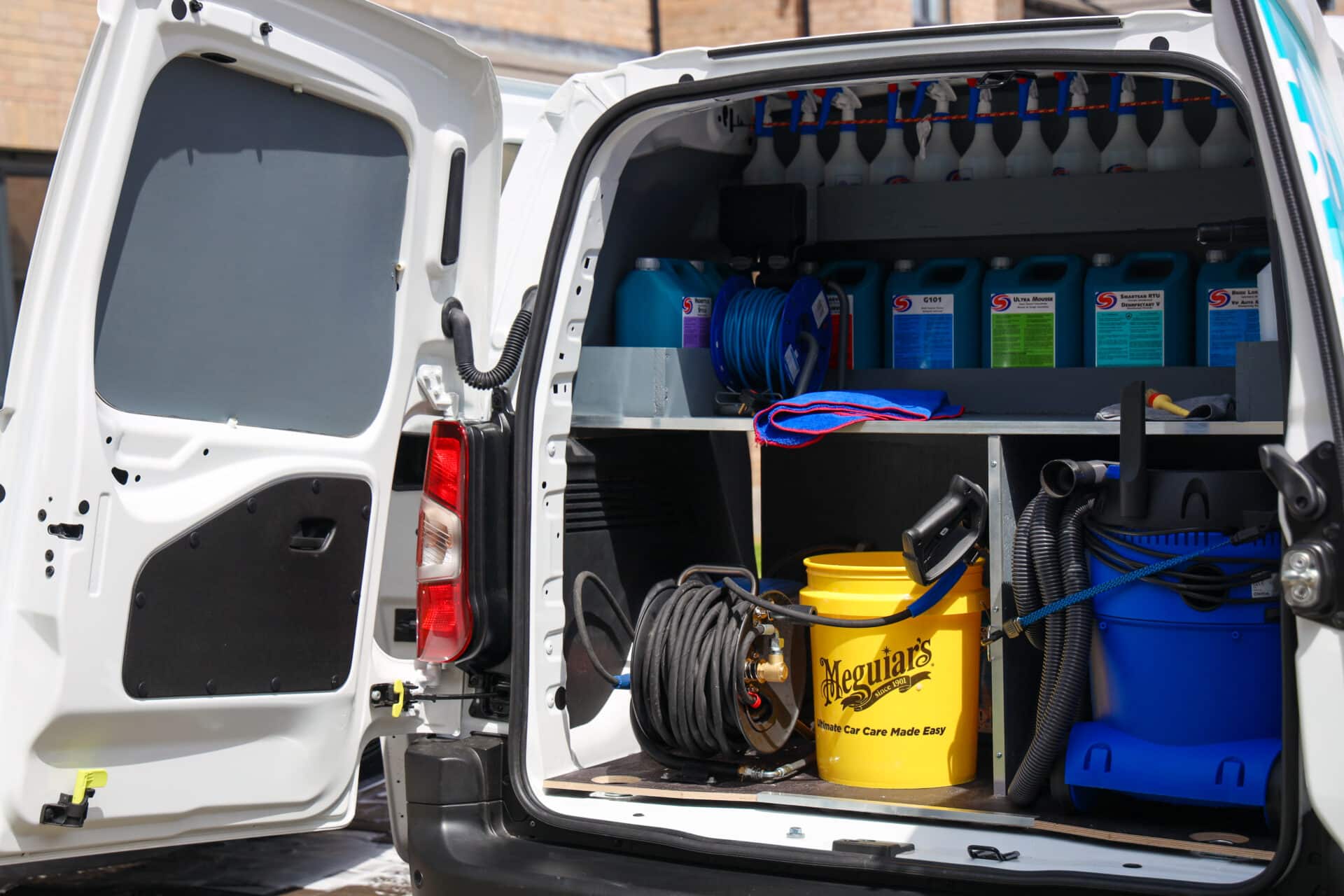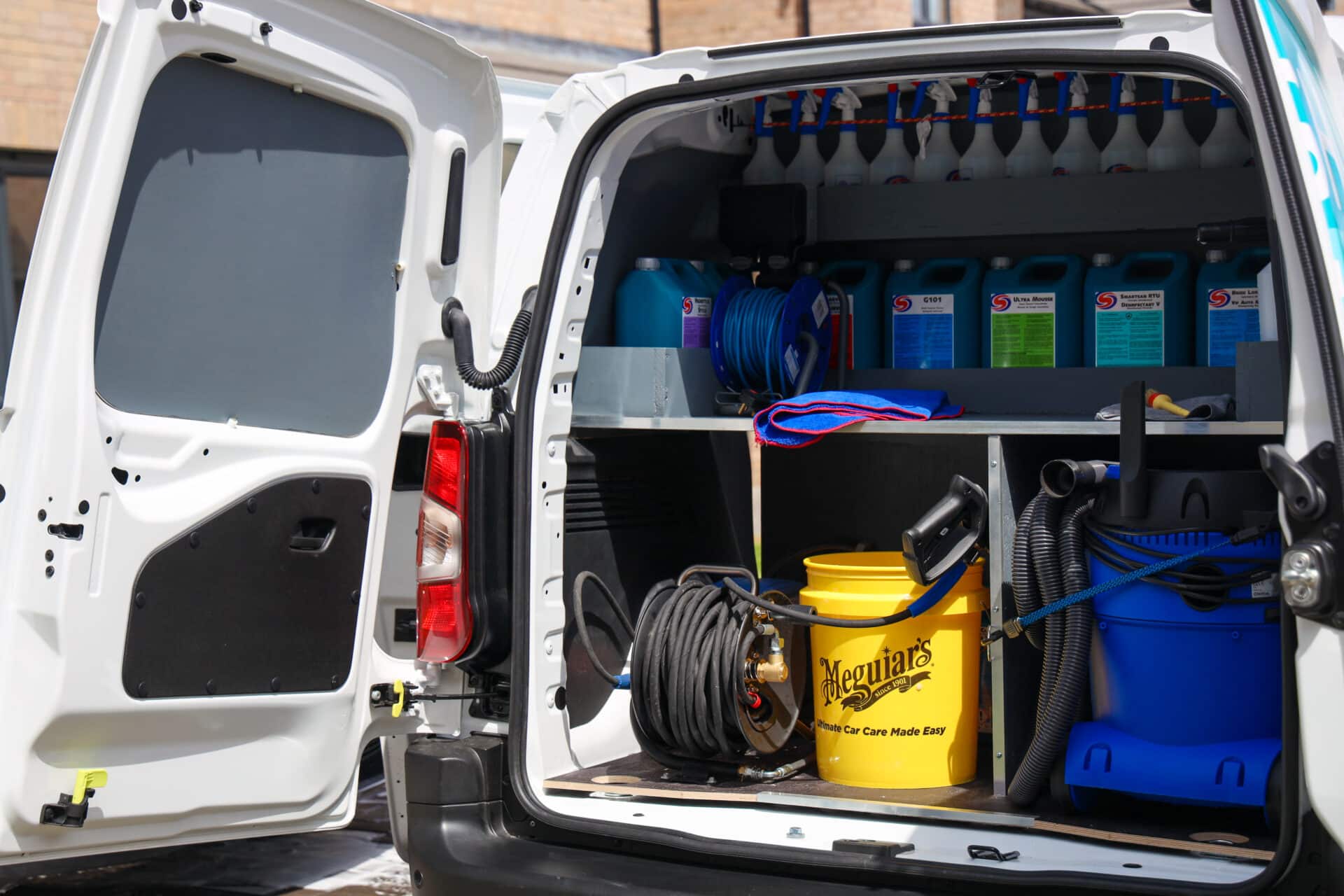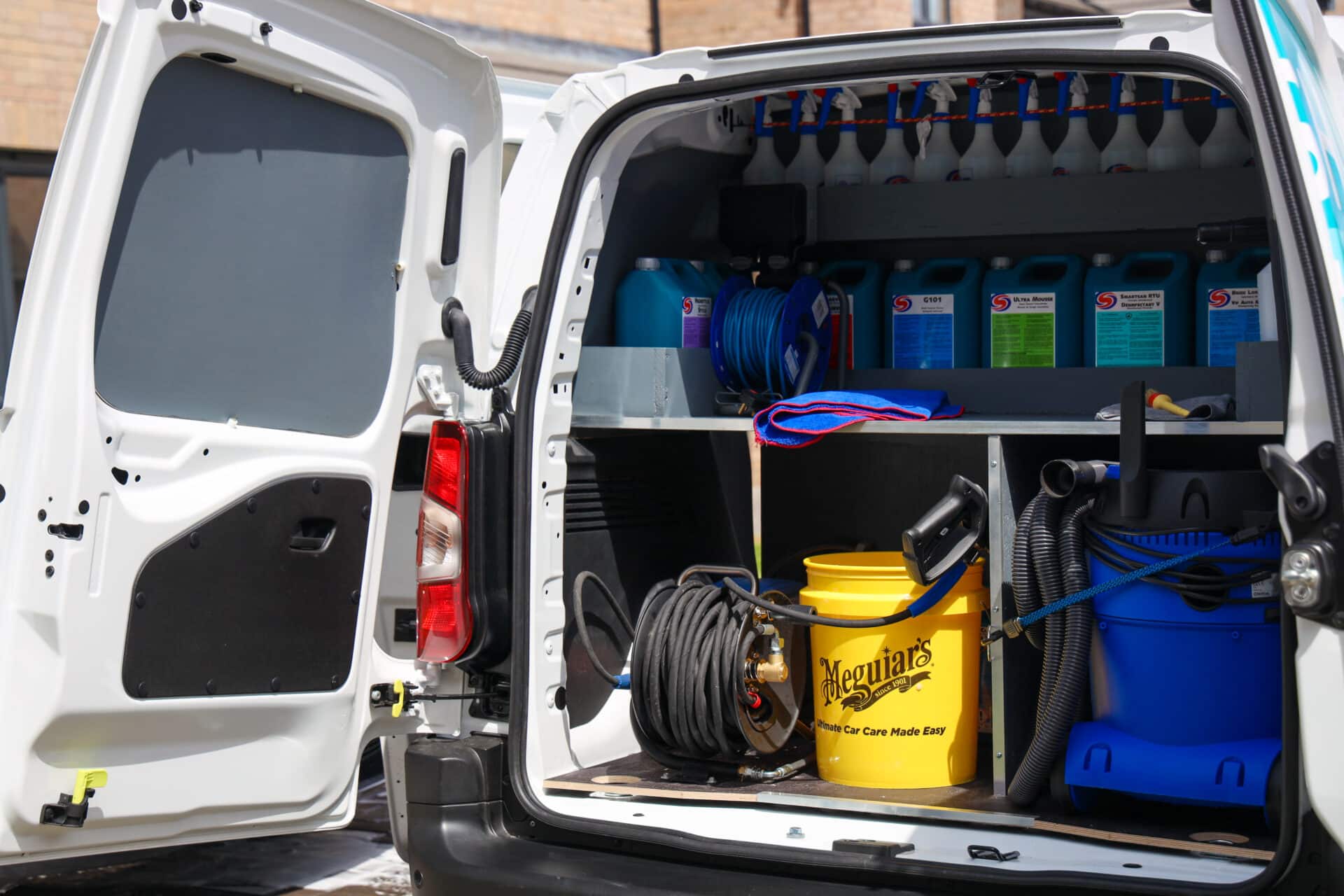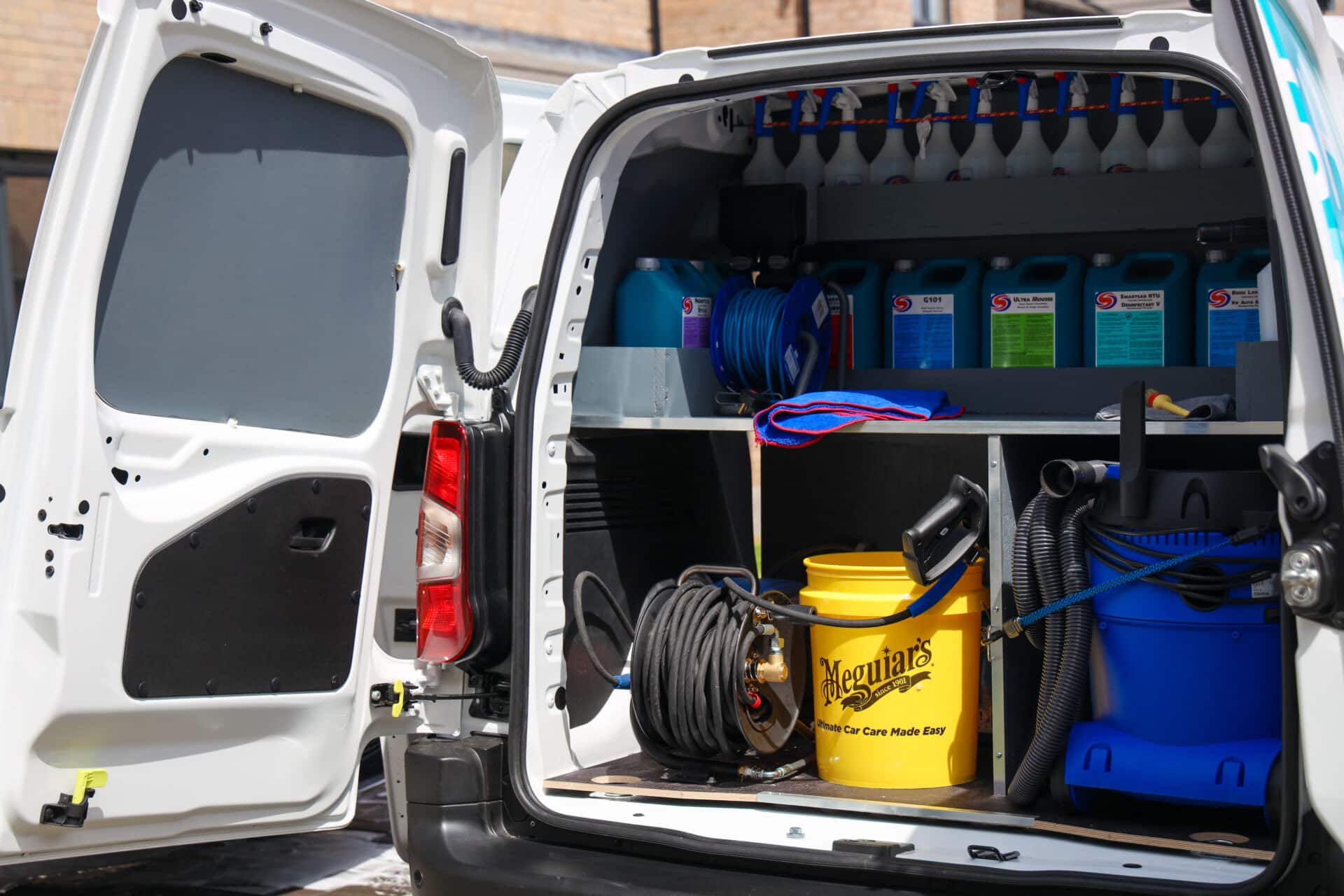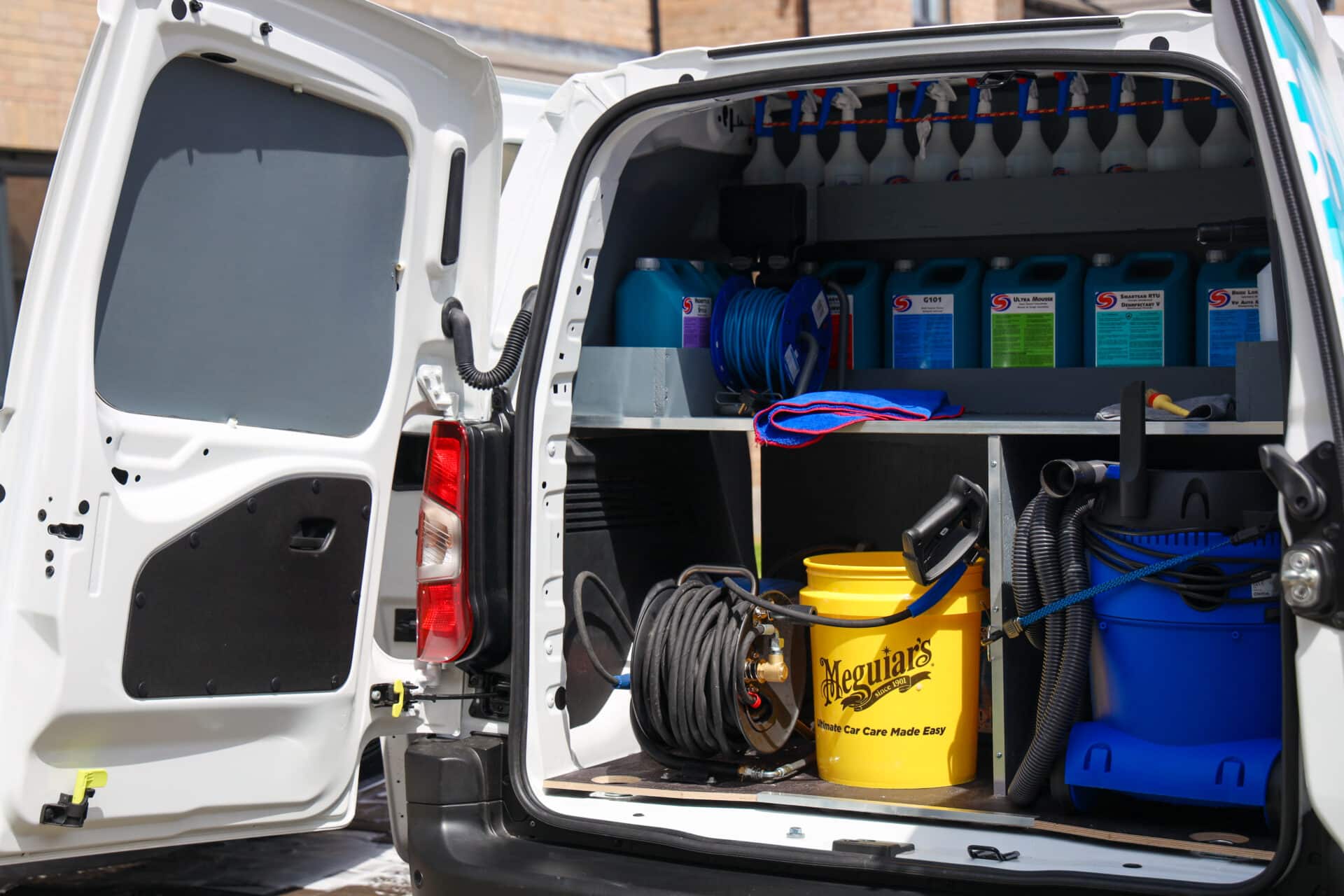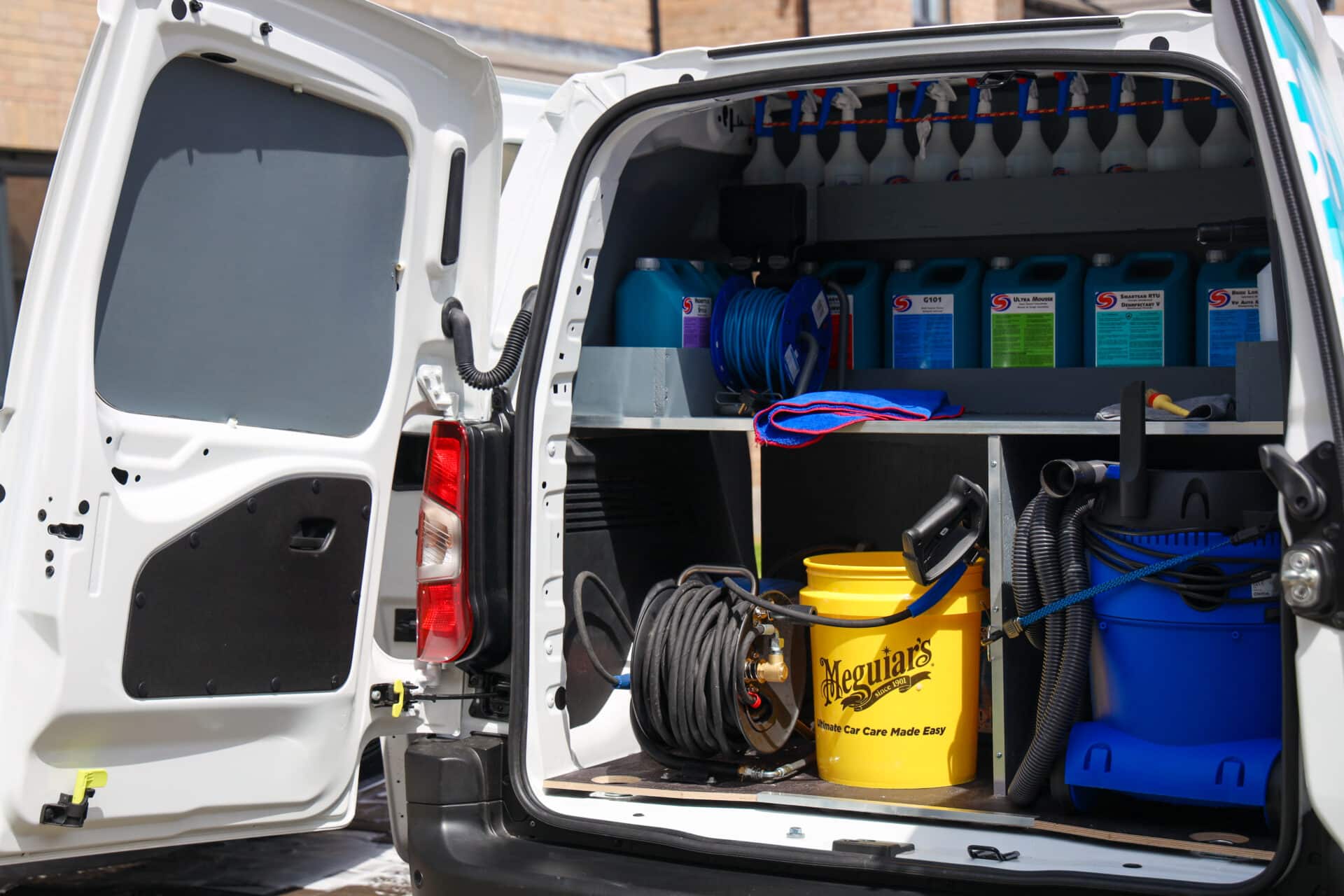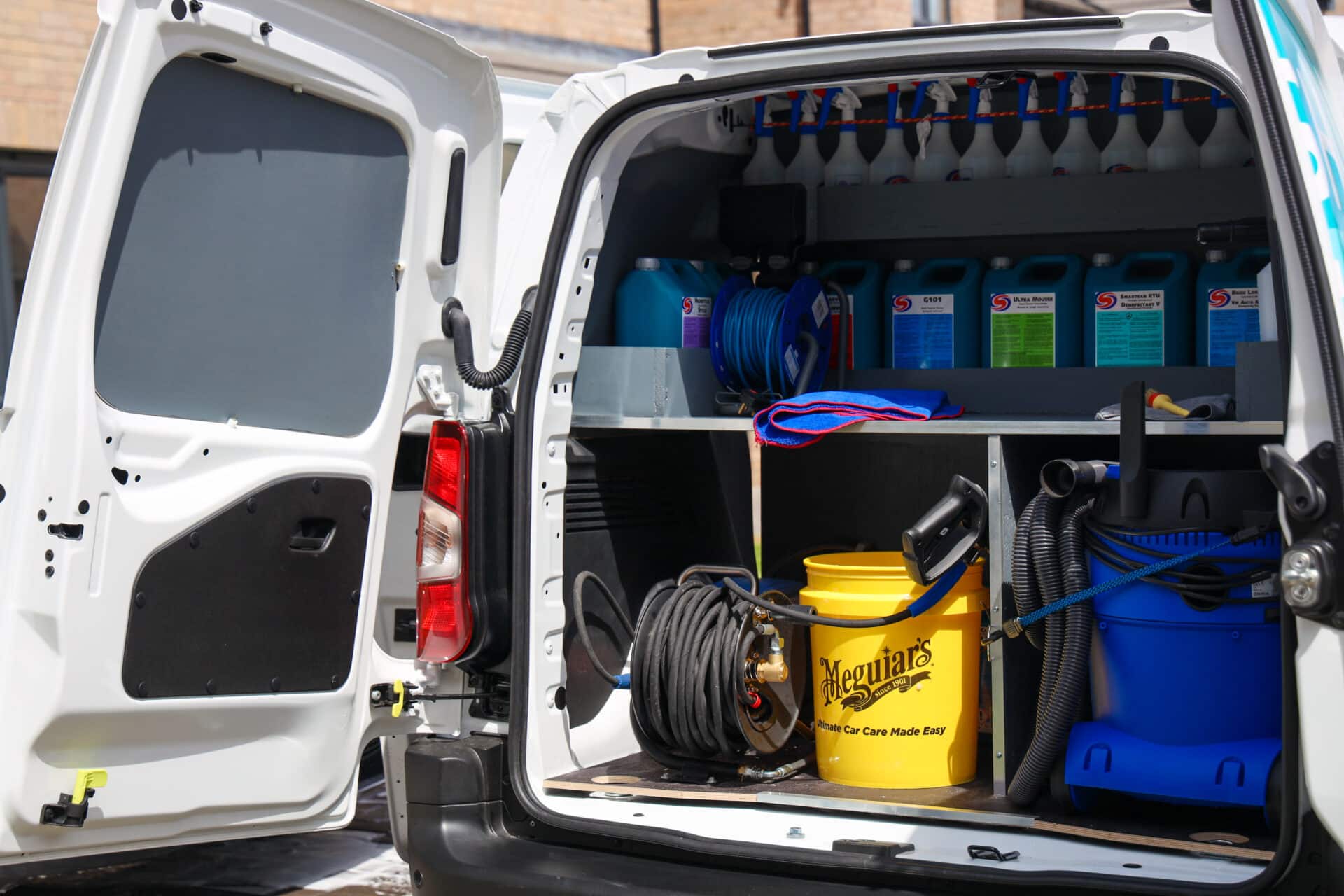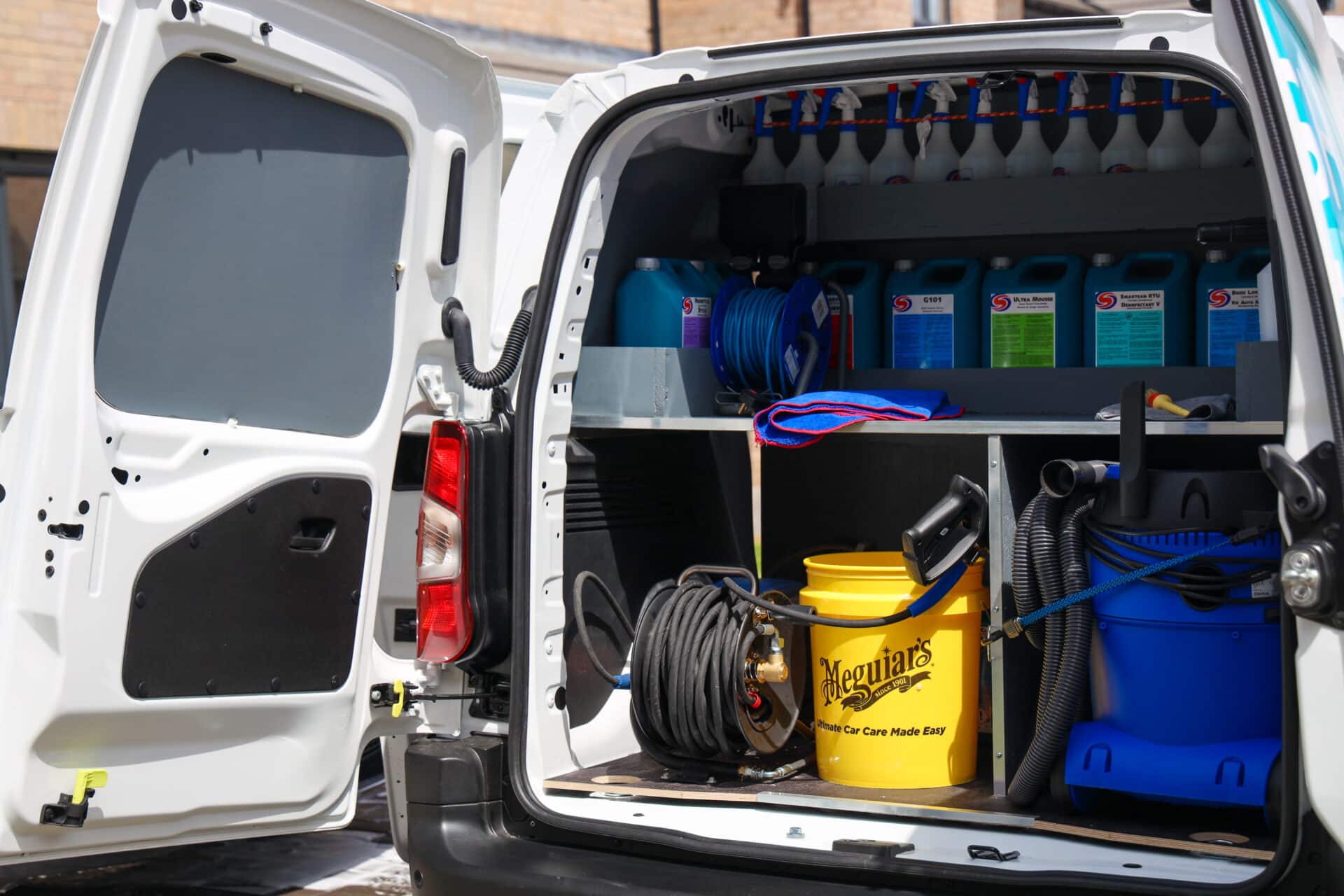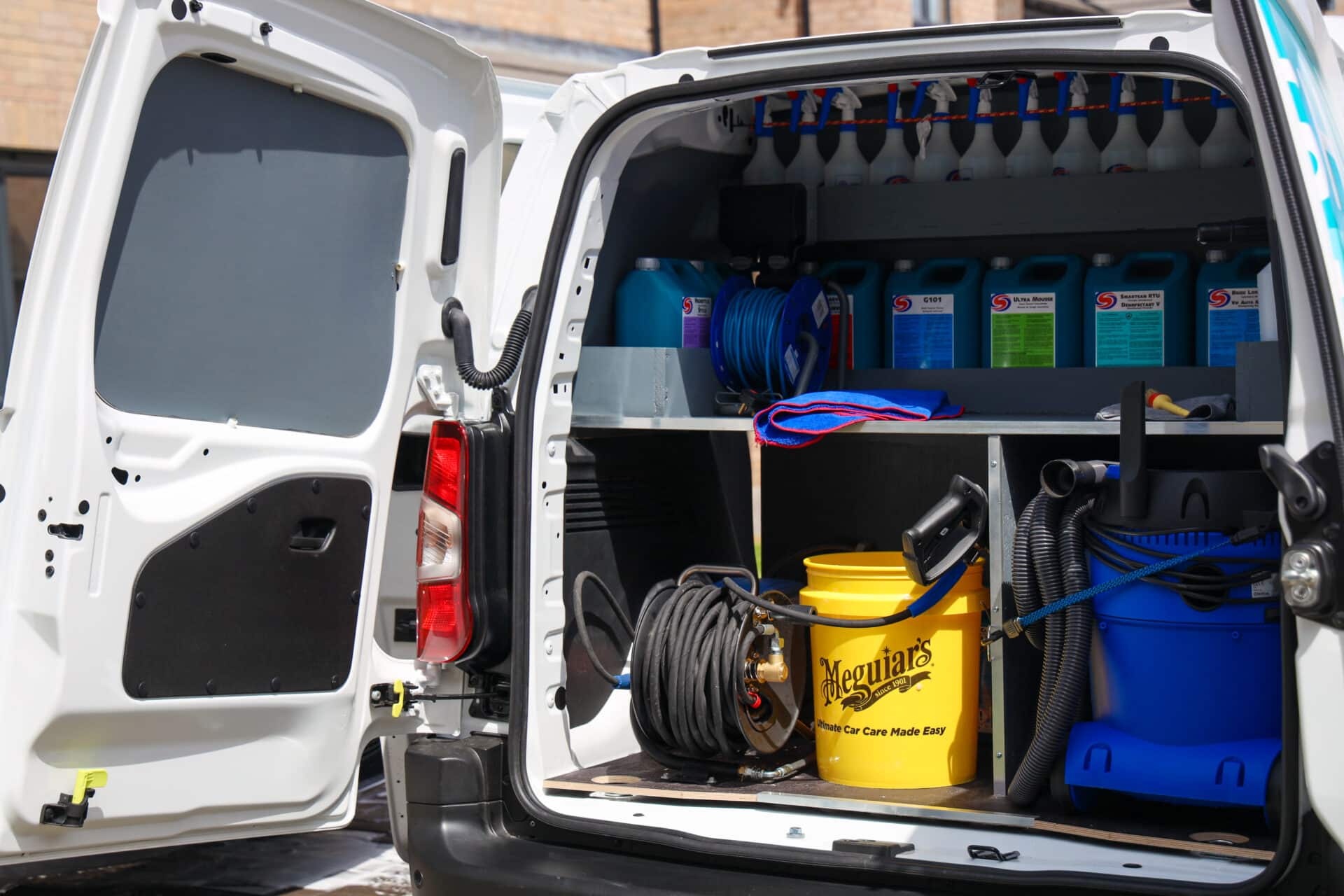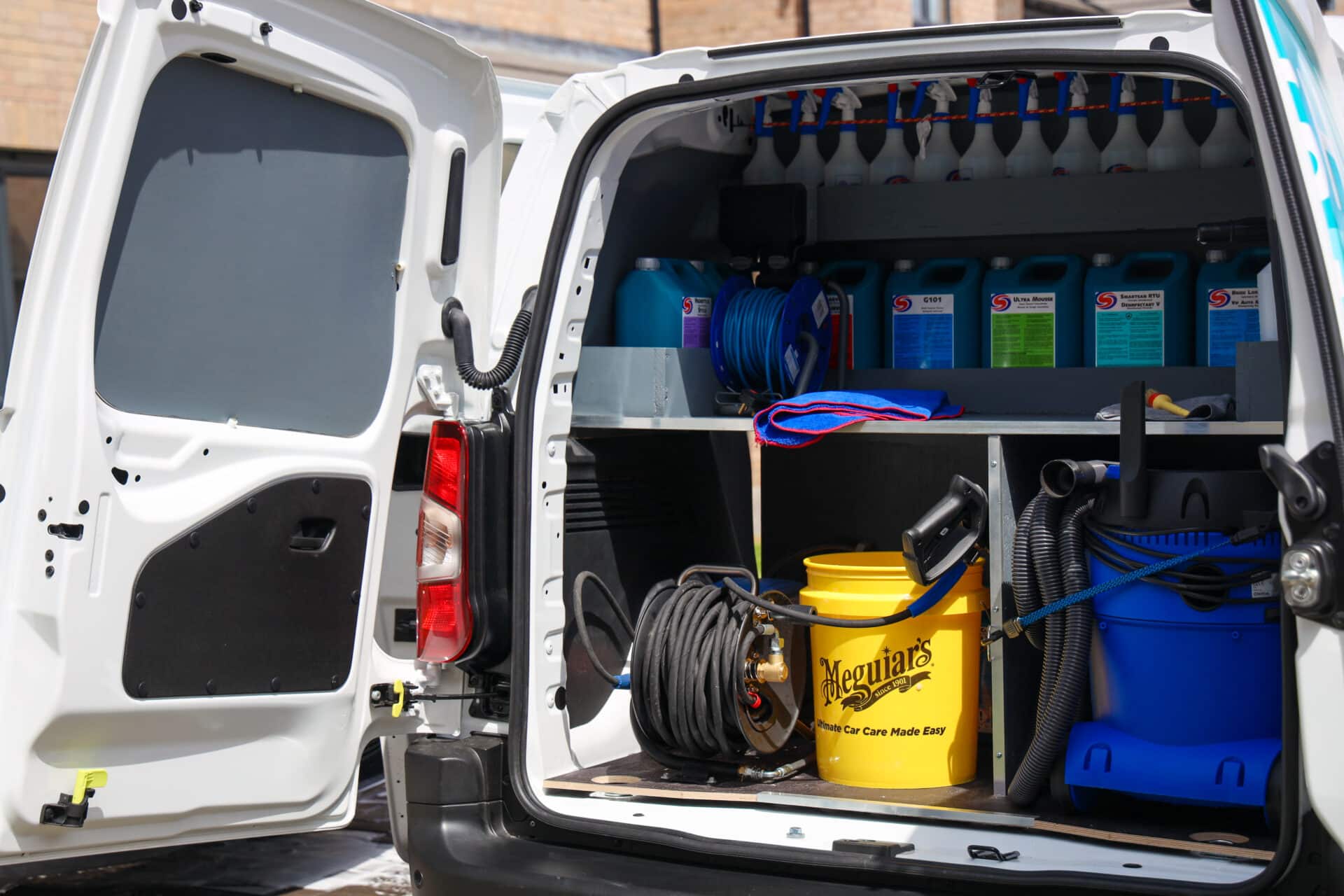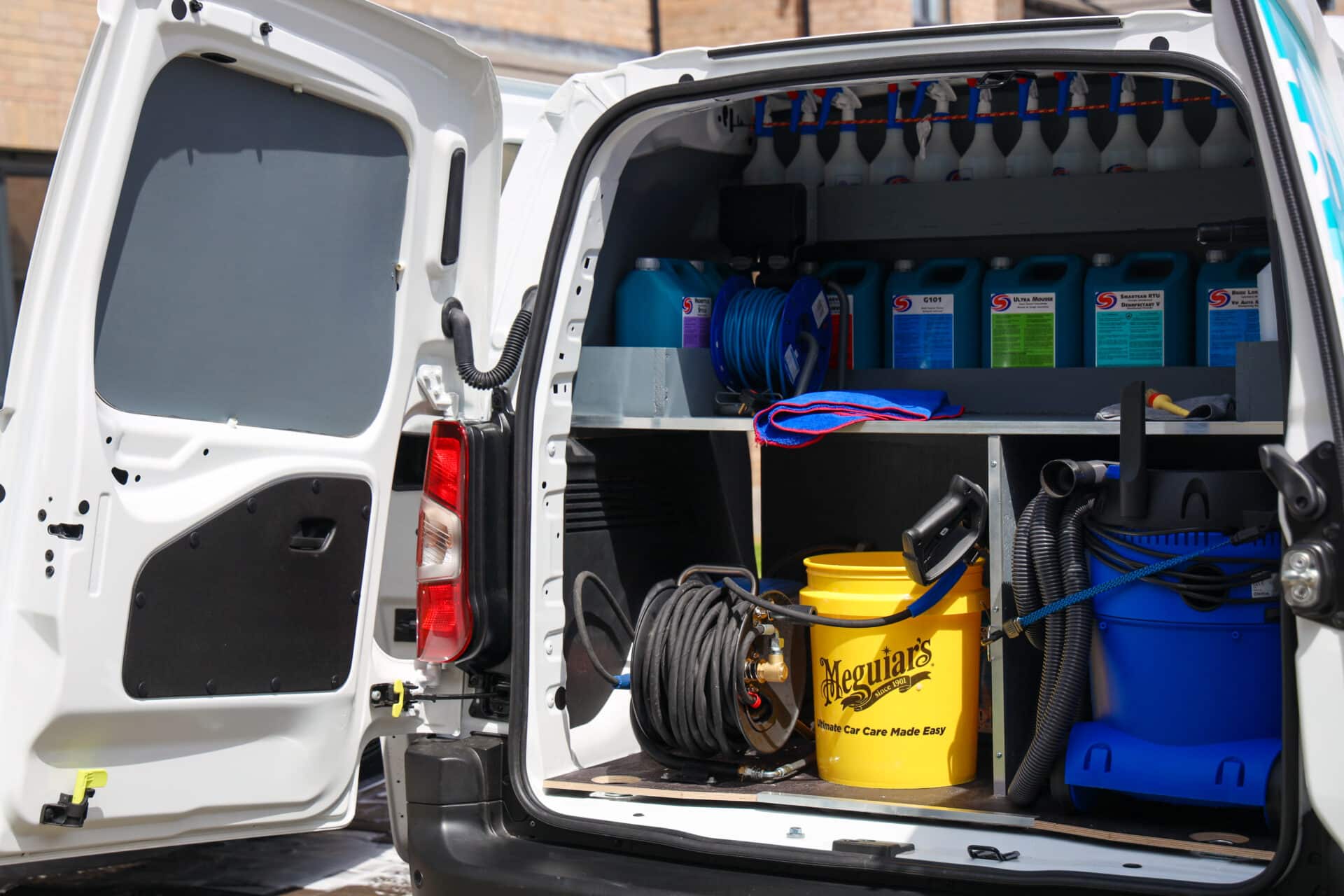Car valeting services have become increasingly popular across the UK, with mobile car valet businesses offering convenient on…
Car Valet Environmental Insurance: Protecting Your Business from Environmental Liabilities
Car valet services face unique environmental risks that standard business insurance policies often don't adequately cover. From chemical spills and water contamination to waste disposal issues and regulatory compliance, environmental liabilities can result in substantial cleanup costs, legal fees, and business interruption. Environmental insurance provides essential protection for car valet businesses against these specialized risks.
Understanding Environmental Risks in Car Valet Operations
Car valet businesses handle various chemicals, detergents, and cleaning products that pose environmental risks. Water runoff containing soap, wax, and contaminants can pollute local waterways if not properly managed. Improper disposal of waste water, used chemicals, or contaminated materials can result in soil contamination and regulatory violations.
Mobile valet services face additional challenges as they operate on various premises, potentially causing environmental damage at customer locations. Fixed-location valet services must ensure proper drainage systems and waste management to prevent environmental incidents.
What Environmental Insurance Covers
Environmental insurance typically covers pollution cleanup costs, third-party claims for environmental damage, legal defense costs, and business interruption resulting from environmental incidents. Coverage includes gradual pollution from ongoing operations and sudden accidental releases of pollutants.
The policy covers investigation costs to assess environmental damage, remediation expenses to clean up contaminated sites, and restoration costs to return affected areas to their original condition. Legal liability coverage protects against claims from neighboring properties or regulatory bodies.
Regulatory Compliance Requirements
Car valet businesses must comply with various environmental regulations including water discharge permits, waste disposal requirements, and chemical storage standards. The Environment Agency regulates water pollution and waste management, with significant penalties for non-compliance.
Local authorities may impose additional requirements for drainage systems, interceptors, and waste water treatment. Mobile operators must ensure they don't cause pollution at customer premises and may need permits for certain activities.
Common Environmental Claims
Typical environmental claims include chemical spills during transport or storage, contaminated water runoff entering storm drains or waterways, and soil contamination from leaked cleaning products. Improper waste disposal can result in regulatory action and cleanup requirements.
Third-party claims may arise from pollution affecting neighboring properties, groundwater contamination, or damage to local ecosystems. Even minor incidents can escalate into significant environmental liabilities requiring professional remediation.
Risk Management Strategies
Implementing proper environmental management reduces risks and insurance costs. This includes installing appropriate drainage systems with oil and chemical separators, using biodegradable cleaning products where possible, and ensuring proper storage of chemicals in bunded areas.
Staff training on environmental procedures, spill response protocols, and waste management is essential. Regular maintenance of equipment and drainage systems prevents gradual pollution incidents. Mobile operators should use spill kits and containment measures at customer locations.
Choosing the Right Environmental Coverage
Environmental insurance should reflect your specific operations and risk exposure. Consider coverage limits based on potential cleanup costs in your operating area, as environmental remediation can be extremely expensive. Higher limits may be necessary for businesses operating near sensitive environmental areas.
Policy terms vary significantly between insurers, with some offering broader coverage for gradual pollution while others focus on sudden incidents. Review exclusions carefully, particularly regarding known contamination or pre-existing pollution conditions.
Integration with Other Insurance Policies
Environmental insurance works alongside your existing business insurance but covers risks typically excluded from standard policies. Public liability insurance may provide limited pollution coverage, but environmental insurance offers comprehensive protection for cleanup costs and regulatory compliance.
Professional indemnity insurance may cover advice-related environmental issues, while employers liability covers staff exposure to hazardous substances. A comprehensive insurance program addresses all aspects of environmental risk management.
Cost Factors and Premium Considerations
Environmental insurance premiums depend on your business size, location, types of chemicals used, and risk management procedures. Businesses with good environmental practices and proper equipment typically receive better rates. Claims history and proximity to sensitive environmental areas also affect pricing.
The cost of environmental insurance is often minimal compared to potential cleanup costs and regulatory penalties. A single environmental incident can result in cleanup costs exceeding hundreds of thousands of pounds, making insurance coverage essential financial protection.
Claims Process and Support
When environmental incidents occur, immediate notification to your insurer is crucial. Most policies provide 24/7 claims reporting and emergency response services. Insurers often have networks of environmental consultants and remediation specialists to manage incidents effectively.
The claims process typically involves immediate containment measures, environmental assessment, regulatory notification, and development of remediation plans. Your insurer coordinates with regulatory authorities and manages the technical aspects of cleanup operations.
Future Considerations
Environmental regulations continue to evolve, with increasing focus on water quality and waste management. Climate change legislation may introduce new requirements for businesses handling chemicals and water resources. Staying ahead of regulatory changes protects your business from future liabilities.
Investing in environmentally friendly practices not only reduces insurance costs but also appeals to environmentally conscious customers. Green cleaning products, water recycling systems, and sustainable practices can differentiate your business in the competitive car valet market.
Conclusion
Environmental insurance provides essential protection for car valet businesses against the significant financial risks of environmental incidents. From chemical spills and water contamination to regulatory compliance issues, environmental liabilities can threaten business survival without proper insurance coverage.
The relatively modest cost of environmental insurance provides substantial protection against potentially devastating cleanup costs and legal liabilities. Combined with proper risk management practices, environmental insurance ensures your car valet business can operate confidently while protecting the environment and your financial future.
Contact Insure24 today to discuss environmental insurance options tailored to your car valet business needs and ensure comprehensive protection against environmental risks.


 0330 127 2333
0330 127 2333
